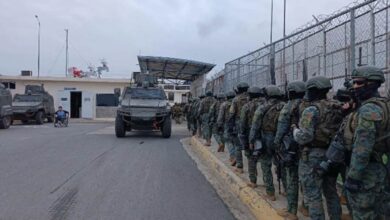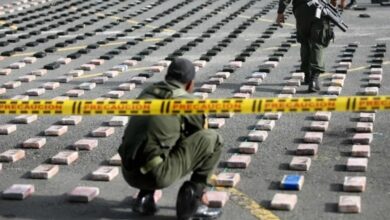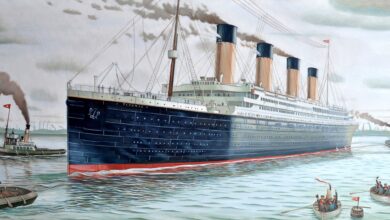Diogo Jota’s Final Journey: Grief, Tributes, and Questions After the Tragedy
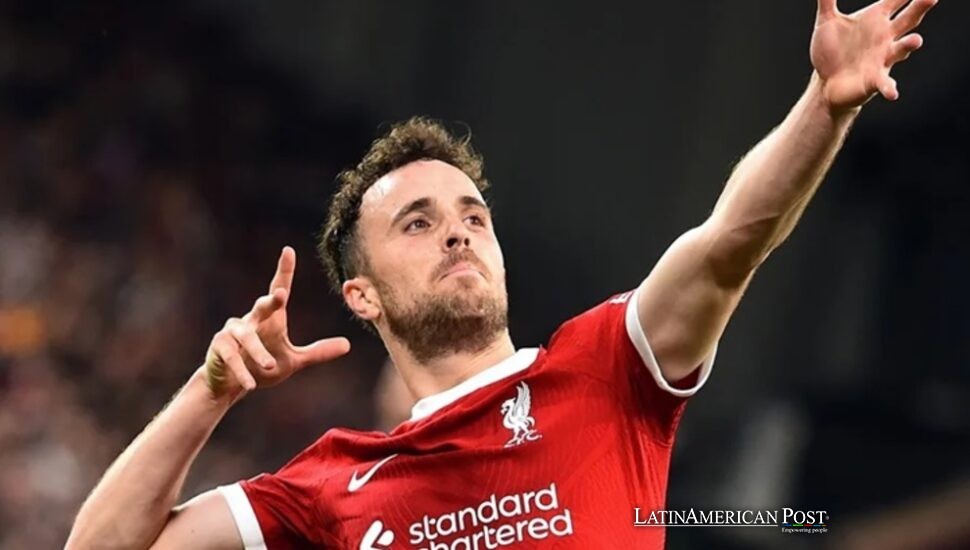
Portuguese football and Liverpool FC are in mourning after the death of Diogo Jota and his brother André in a car crash in Spain. Tributes, shock, and unanswered questions surround a farewell marked by deep sorrow and emotional impact.
A Tragedy That Shook European Football
The early hours of Thursday, July 3, marked one of the darkest days for Portuguese football and Liverpool FC. Diogo Jota, 28, and his brother André, 26, lost their lives in a car accident near Zamora, in northwestern Spain. They were traveling in a high-performance Lamborghini that, according to preliminary reports, suffered a tire blowout while overtaking, causing the vehicle to veer off the road. Both died at the scene.
The news was confirmed on Thursday morning and immediately caused a wave of shock in sports media, social networks, and football clubs. Liverpool issued a statement expressing its “profound devastation,” highlighting not only Jota’s footballing talent but also his human qualities. Since joining the Reds in 2020, the forward had been a key figure, known for his speed, tactical intelligence, and goal-scoring instinct.
Jota was traveling by car due to medical advice following recent lung surgery. After helping Portugal win the Nations League, he underwent a procedure that temporarily prohibited air travel. His plan was to drive from Portugal to Santander and then take a ferry to Portsmouth. The crash abruptly ended that journey.
As authorities investigate the technical causes of the accident, the football world remains stunned by the loss of a beloved talent in the prime of his personal and professional life.
Mourning in Anfield and Gondomar
In Liverpool, fans spontaneously gathered outside Anfield as soon as the news broke. Flowers, scarves, jerseys, and candles quickly covered the stadium gates. Some supporters sang his name, others cried silently—all united by the pain of losing one of the club’s most charismatic figures.
Tributes quickly poured in. Former and current players, along with Liverpool legends, joined in expressing their grief. Jurgen Klopp, visibly shaken, asked for privacy for the family and time for the dressing room to process the emotional blow. Jota had been more than a player—he was a joyful and unifying presence within the squad.
Over 1,500 kilometers away, in Gondomar (Portugal), the Church of São Cosme hosted a sorrowful funeral for the two brothers. Jota’s wife, Rute Cardoso, led the procession in visible anguish. Alongside her, friends such as Ruben Neves and members of the Portuguese national team carried the coffin. The images traveled across the world, capturing the gravity of the moment.
Attendees wore shirts from clubs Jota played for: Porto, Atlético Madrid, Wolverhampton, and Liverpool. Outside the church, words of support and chants in his honor echoed through the streets. It was a farewell filled with dignity, pain, and community unity.
Unanswered Questions About the Crash
Spanish authorities continue to investigate the exact causes of the accident. While the leading theory points to a tire explosion as the immediate cause, other factors are being considered. These include possible speeding, driving error during overtaking, or mechanical failure.
The Lamborghini Huracán showed signs of a violent off-road impact. Forensic experts are analyzing whether road conditions or time of day may have played a role. The accident occurred around 12:30 a.m., a time associated with reduced visibility and driver fatigue.
The incident has sparked broader debate about road safety for professional athletes. While it is uncommon for players to drive long distances in high-powered vehicles, Jota’s recent surgery complicated air travel. His decision to make the trip by car was driven by medical necessity.
This tragedy may prompt clubs and federations to reassess travel protocols for recovering players. Greater institutional support and safer alternatives might be needed—even if they involve higher costs or longer travel times.
A Legacy of Goals, Humility, and Respect
Diogo Jota was far from an ordinary player. He rose through Porto’s ranks, blossomed at Wolverhampton, and reached new heights at Liverpool. He scored more than 100 goals in his professional career, many in decisive matches. But beyond statistics, he was known for his humility and work ethic.
Jota was capped over 35 times by Portugal, playing in European Championships and Nations League competitions. He was a respected figure in the national team locker room and formed close bonds with players like Bruno Fernandes and Bernardo Silva. Teammates remember him as quiet, generous, and committed.
At Liverpool, he won fans over quickly. His versatility, pressing, and link-up play with Salah and Núñez made him a tactical asset. He contributed not only with goals but also with defensive effort and team spirit—qualities that endeared him to supporters and staff alike.
Social media has been flooded with emotional tributes. “No words, brother,” wrote Virgil van Dijk. “Thank you for your football and your heart,” added Trent Alexander-Arnold. Clubs he previously played for also honored his memory, emphasizing the personal and professional mark he left behind.
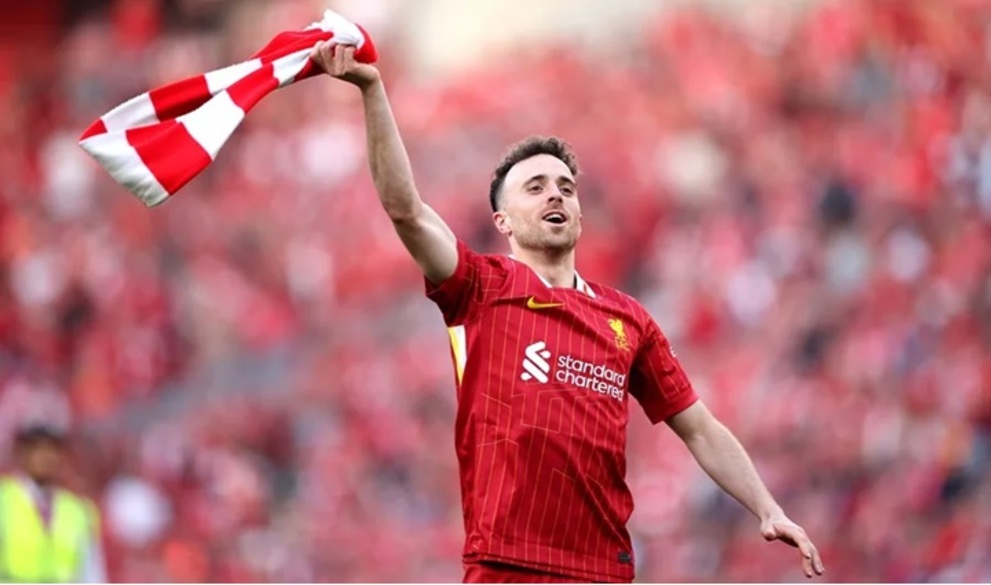
EFE@Adam Vaughan
Tributes That Go Beyond the Game
Tributes have multiplied since the tragedy. Liverpool is considering naming a section of Anfield after Jota. A mural in the Toxteth district, where he lived with his family, is also in the works. In Gondomar, neighbors and fans are pushing to name a street or sports facility in his memory.
On social media, hashtags like #ObrigadoJota and #JotaEterno trended in Portugal and the UK. Athletes, artists, and journalists shared memories and condolences. His final tweet, posted just hours before the accident—a training photo with a hopeful caption—has become a chilling symbol of a life cut short.
Portuguese charities have seen donations in his name, and there are discussions about establishing a foundation for respiratory illness research, inspired by his recent medical challenges. Rival clubs like Benfica and Sporting have expressed support for the initiative, putting rivalry aside to honor a fallen colleague.
These gestures highlight how Jota’s impact transcended football. He represented professionalism, resilience, and humility—values that fans and peers alike now seek to preserve in his legacy.
A Loss That Moves and Mobilizes
Diogo Jota’s sudden death has left a deep wound in the international sports community. His young age, the family context of the trip, and his well-loved personality have turned his story into a symbol of human fragility—but also of collective remembrance.
Also Read: Cuban Reynaldo Espinoza Lights Up Málaga—and Edges Closer to History
While investigations continue, Jota’s image remains vivid: a sharp striker, a calm man, a young father. His legacy is now being carried forward through tributes, shared memories, and deeper conversations about the risks athletes face off the pitch. The game pauses, but the memory remains.


